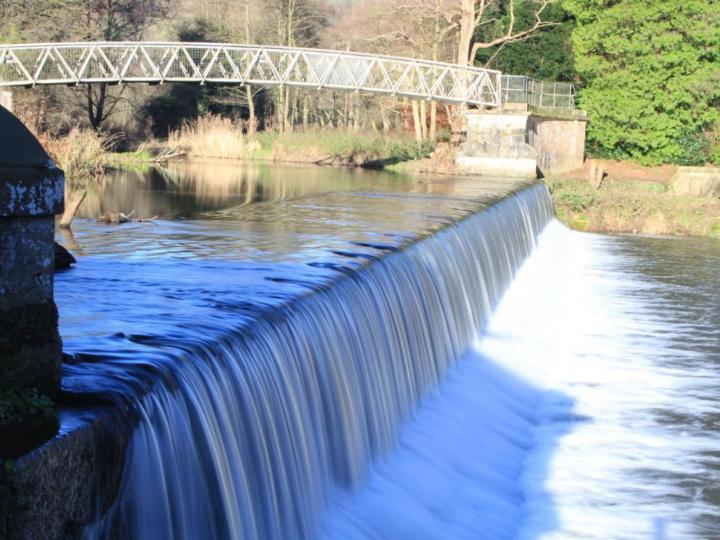
Building work is taking place as part of a £570,000 project to build a fish pass at the Grade II listed Crumpwood weir.
The unique fish pass which is being built underneath the nearby disused 19th century pump house, will improve fish passage along the River Churnet. This is the first step in plans that will hopefully see the pump house restored and part of the former Cauldron and Uttoxeter canal reinstated.
The fish pass, delivered in partnership with South Staffs Water, JCB and Staffordshire Wildlife Trust, will see 7 kilometers of river opened up to all fish found in the rivers, such as Atlantic Salmon, Brown Trout, Grayling and Chub to name a few. Helping fish migrate up and down the river means they can find the best habitat to feed, shelter, spawn and grow.
We’re very grateful to JCB who have loaned the heavy plant equipment for this project, and for the support of South Staffs Water who own the historic pump house. Without their support and contributions this project would not have been achievable.
Crumpwood weir, originally built between 1807 and 1811, was part of the Froghall to Uttoxeter Canal and later used for public water supply. Today it forms an important historic feature in the Churnet Valley’s landscape. But, while it is very pretty to look at, the 2.7 metre difference in the height of the water means it is an impossible barrier for fish and wildlife to pass.
Chris Grzesiok, fisheries, biodiversity and geomorphology expert from the Environment Agency said; We’re excited to be part of this project and to contribute over £330,000 to this project to help fish move freely up and down the river Churnet. This is one step towards delivering the 25 year environment plan’s vision of catchments functioning more naturally where wildlife can thrive and migrate freely.
JCB Demonstration and Test Site General Manager Dave Pegg said: We are delighted to assist the Environment Agency by providing JCB equipment for this project and we look forward to its completion.
Ken MacDonald, Head of Water Strategy, at South Staffs Water said: We are always looking for opportunities to work with local community groups and the Environment Agency to protect and enhance the biodiversity of the natural environment. We aim to provide a reliable supply of high quality drinking water for future generations at the same time as allowing wildlife to flourish. This new fish pass at Crumpwood is a practical example of how we can achieve this by working in collaboration with other organisations.
This project is being part funded by the Marine Management Organisation, who are contributing £240,000. Funding from the Marine Management Organisation is part of a coordinated and funded programme of projects for 2018/19 with the aim of freeing migration routes of barriers to fish.
This project is part of that programme funded by over £1.6 million of European Maritime and Fisheries Funds, which is matched by more than £1 million of Agency/Defra funding and £300,000 of other funds.

